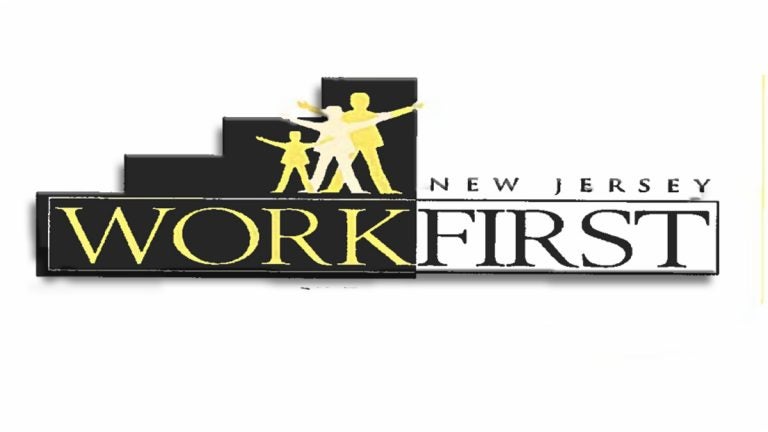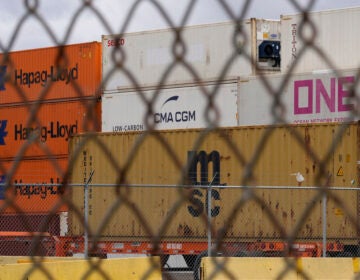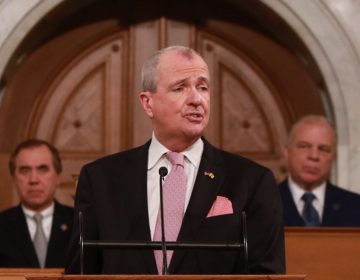Explainer: How New Jersey’s welfare program works

This year marks two decades since a Democratic president signed a Republican-sponsored bill that revamped the nation’s welfare system.
Like other states, New Jersey revised its cash safety net program to meet the requirements of the Personal Responsibility and Work Opportunity Reconciliation Act of 1996. The law replaced the Aid to Families with Dependent Children Program (AFDC) with the Temporary Assistance to Needy Families (TANF) – both programs are better known as welfare.
The new law limited the amount of time a person or family could receive aid and imposed some work-related requirements.
How Welfare Works in NJ
The main TANF program in the state is called WorkFirst NJ, administered by the state Department of Human Services.
County social-services agencies administer the cash assistance, while social-services components and the state Department of Labor and Workforce Development oversee the work-related portions of the plan.
Like the federal law, it limits assistance to an individual to a total of five years over a person’s lifetime. The state’s current plan calls TANF “a temporary cash subsidy to bridge the gap while individuals seek and obtain self-sufficiency through bona fide unsubsidized employment.”
TANF cash assistance is available to eligible families with children.
Because the program’s financial components have not been updated, it is difficult to qualify for TANF today.
A family of three can have no more than $2,000 in savings and earn no more than $636 a month, or $7,632 a year, although a portion of income received as a result of employment is not counted toward that. That’s only 38 percent of the current federal poverty level of $20,090.
A qualifying family of three would receive $424 a month, or $5,088 a year, in TANF cash assistance for a total of five years.
There are limited circumstances in which a family may be renewed to receive TANF beyond the five years due to extreme hardship. Those ineligible for a hardship waiver may get up to 24 additional months of support through the Supportive Assistance for Individuals and Families program, which also includes intensive case management.
Recipients receive their benefits through electronic transfer.
The most recent WorkFirst NJ quarterly report available, for the last quarter of 2014, showed a caseload of 32,400 TANF families, a slight decrease from the previous quarter.
Benefits in Addition to Cash
Families participating in WorkFirst NJ may also receive a number of other benefits designed to help support them as adults seek and find employment. These include medical care through NJ FamilyCare/Medicaid, child care subsidies, transportation allowances or transit passes, substance abuse treatment, parenting and nutritional education, work uniform allowances, a one-time moving allowance, and job training. Some of these services remain available for a time once a family leaves TANF.
Should those on TANF or who recently left the program and have income below 200 percent of the federal poverty level be able to save money for a home, college or business, their savings will be matched in an Individual Development Account.
Emergency assistance for other needs, including food and clothing, is also available when needed and housing assistance programs can be tapped to help families avoid homelessness.
Work Requirement
Because it is seen as a program designed to help families until they can become self-sufficient , the work requirement is important. Before a family is deemed eligible for assistance, adults must register with a local unemployment office and participate in appropriate activities. These may include basic education skills remediation, English as a Second Language classes, or vocational classes. Or applicants may need to search for work, go through job training or participate in community service.
New Jersey has lately been placing an emphasis on getting those who are qualified into elder care positions, either in long-term care facilities or as home health aides.
Eligibility Renewal
Those receiving TANF are given an Individual Responsibility Plan that spells out steps to be taken toward self-sufficiency, barriers to employment, and all support services needed. TANF cases are re-evaluated for continued eligibility at least every 12 months and the IRP is updated when a family’s circumstances change or when it’s time for redetermination for continued benefits.
Funding
New Jersey receives federal block grant funds to cover TANF payments. This amount, around $400 million, has not changed since the reform law was enacted two decades ago. The state also must use some of its own money to receive the federal funds and New Jersey spends money to fund, for instance, benefits for two-parent households.
New Jersey is one of only 10 states that still provides a cash benefit to childless adults. Called General Assistance , this program has tight income and resource limits and, as a result, covers only the very poor. New Jersey’s maximum monthly benefit of $210 is for people who are disabled or otherwise unemployable; for single adults and childless couples, the maximum is $140. According to the quarterly report, 29,400 people received General Assistance in New Jersey in December 2014.
Caveats
There are a number of other qualifiers. Immigrants who are not yet citizens are not eligible for benefits until they have been in the United States for five years. An unmarried mother who is a minor must generally live with a parent or guardian, have her benefits paid to that person, and attend high school, an equivalency program or a work activity.
Children born to a woman already receiving TANF will not receive a cash benefit. All participants also must meet any court-ordered child support requirements. Violating any of the program’s rules — for instance, hiding income or not participating in work activities — lead to sanctions that include a loss of benefits.
_____________________________________________________________________
 NJ Spotlight, an independent online news service on issues critical to New Jersey, makes its in-depth reporting available to NewsWorks.
NJ Spotlight, an independent online news service on issues critical to New Jersey, makes its in-depth reporting available to NewsWorks.
WHYY is your source for fact-based, in-depth journalism and information. As a nonprofit organization, we rely on financial support from readers like you. Please give today.



